Cure - Royal Albert Hall, London, 15/11/2011
by Anthony Strutt
published: 15 / 1 / 2012
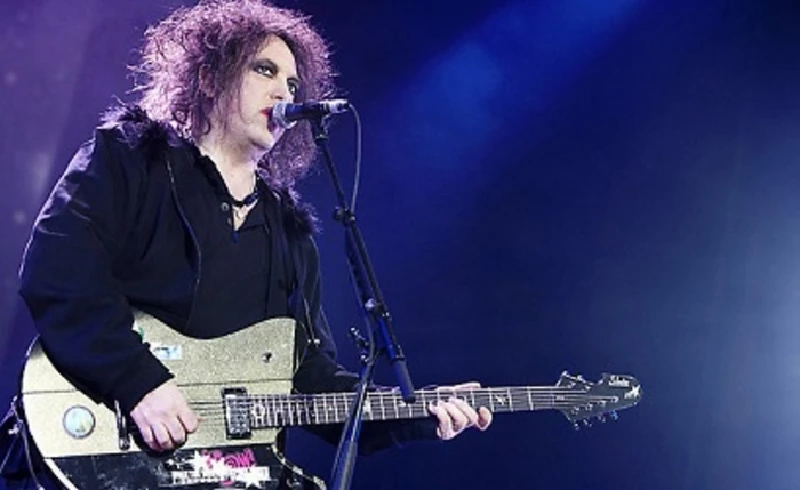
intro
Anthony Strutt finds the Cure to be on fantastic form at the Royal Albert Hall, in the only British date of their short 'Reflections' tour, which saw them perform their first three albums, 'Three Imaginary Boys', 'Seventeen Seconds' and 'Faith', in their entirety
The Cure have always been special to me, And tonight's show is extra special because in two days I will quit my job, and in five days I will leave my home town of London for good for a new life in a new town. All my hardcore friends are here, as they all love the Cure as much as I do. I was very lucky to get a ticket as I pre-booked it the day before they officially went on sale through an agency I have used for over twenty years now. The gig itself sold out in four minutes. ‘Reflections’ was originally performed on May 31st and June 1st in Australia and at the Opera House in Sydney, which front man and guitarist Robert Smith, and the only original member, claims he has never played before, but I know that isn't true as I have a Cure radio concert from that said venue from about 1980. We in Britain are still hard done by, as the Australians got two shows, and later on in November they perform it in America three times at the Hollywood Bowl and then another three times in New York. It has become quite fashionable for groups to perform albums in their entirety, giving the fans a chance to relive a band's finest moments, and maybe if they became fans of the band latterly to see them play songs and records that they missed out on first time around. During ‘Reflections’ the Cure play all of their first three albums live, and as they did originally in three different line ups. Their debut album, ‘Three Imaginary Boys’, came out in 1979 on vinyl and cassette on Fiction Records, which was then a new label then, and is now also home to Snow Patrol among others. ‘Three Imaginary Boys’ was a new wave record fuelled by punk rock ideology, but it has some decent numbers that have stood the test of time. Tonight there is no support, and the band come on stage early too. ‘Three Imaginary Boys’ is performed as a three piece as it was back then, and tonight by Robert Smith, with Simon Gallup and Jason Cooper on bass and drums, When they originally toured this album at venues like The Rainbow in the late 70s, the average gig ticket was £2.50. Tonight the prices with booking fee were £134, £84 and £56. I went for £84, and for that I get a decent seat at the front of the circle, next to a family, in which the husband can't sit still, goes to the toilet every fifteen minutes and tells me in great detail how much the tickets were on eBay for this show. The show is a Reflection also of the Cure back in the day, so there are no fancy tricks and lots of smoke machines as you would expect. Robert thanks us for coming to the show and they open the set with ‘10.15 Saturday Night’, which opened that first album, and was the B side of their debut Small Wonder-label single, ‘Killing an Arab’. It is still one of the band's best moments, a song about the boredom of the late 1970s, when entertainment consisted entirely of standing around on street corners, smoking, going to the cinema, trying to get off with the opposite sex, or alternatively listening to post punk in your bedsit. ‘10.15 Saturday Night’ captures this perfectly, and is a song about watching a tap dripping. ‘Accuracy’ has a new wave loop-like feel. ‘Grinding Halt' is another early favourite, a song to pogo along too, while ‘Another Day’ is much more downbeat, very much a post punk number. ‘Object’ has more urgency to it, while ‘Subway Song’ is an atmospheric number, upon which Robert plays mouth organ, doing a Neil Young/Bob Dylan impression on us. ‘Subway Song’ is creepy, a song about a girl walking home late at night, fearful of the unknown and a possible attacker behind her. ‘Foxy Lady’ needs no introduction, as it is a cover of the Jimi Hendrix track number, which in the Cure's early hands has a driving pace to it. ‘Meat Hook’ has something of a ska feel to it, and ‘So What’ has a fast urgency to it. ‘Fire in Cairo’ is almost a pop song, and is still a popular number in the band's 32 year career, ‘It's Not You’ is a song to mosh too, while the title track of ‘Three Imaginary Boys’ has a gloomy feel to it and is very popular with the hardcore crowd, but I have got bored with it over the years. This ends the original LP, but the band carry on and play ‘Weedy Burton’, a throwaway number which graces the band's remaster of this album, before they leave the stage celebrating the end of 1979. The second set opens with Robert telling us that 1980 was a strange year and that they went away and recorded an album called ‘Seventeen Seconds'. ‘Seventeen Seconds’ saw the band gain a fourth member, taking on a keyboardist, and tonight the band's second set is performed with Roger O'Donnell, who is back in the band after Robert sacked him from it in 2005, replacing him with another old band member, Porl Thompson. ‘Seventeen Seconds’ is a much darker album, and saw the band shake off their new wave roots and carry on from where Joy Division left off. The album again was released originally on vinyl, so lasts just over the thirty minute mark. ‘A Reflection’ is a short moody instrumental that sets the pace for the album. ‘Play For Today’ could have been a single but never was, and, named after the series of TV plays of the time and getting the crowd singing along to it, receives the biggest cheer of the night so far. ‘Secrets’ is a perky track, while ‘In Your House’ is dark, black-coated magic. ’Three’ is another moody number, while ‘The Final Sound’ is a short instrumental, which on record sounds odd and as if the needle has jumped onto the next track, ‘A Forest’, which is complete magic, their greatest hit ever, and a song that makes the crowd jump up and down in joy. ‘’M’ is the perfect follow on and again very bleak. ‘At Night’ is much gloomier. Roger’s keyboards on it sound like violins, making it even sadder. ‘17 Seconds’ ends the album, and, more reflective,was the start of a much darker period for the band. ‘Faith’, which came out in 1981, was the third studio album by the Cure, but actually it was album number four as a 1980 compilation called ‘Boys Don't Cry’ was released, collecting together some single tracks and an unreleased number called ‘World War’. After a short break, the band rejoin us as a five piece with Lol Tolhurst, an original member who was kicked out of the band in 1989, joining the group. Lol isn't announced, but plays along with the rest of the band on additional keyboards and additional drums. ‘Faith’ is a dark album, one of my personal favourites, very bleak, but a lot more digestible than its 1982 follow-up, ‘Pornography’. It is another short album that searches into the soul and the human condition. ‘The Holy Hour’ is very loud and perfectly doomy, a perfect song for a funeral. It is really that black. ‘Primary’ was the only single from ‘Faith’, and the only track that isn't totally gloomy. Loud and fast, it is a perfect number to dance to and gets the biggest cheer so far. ‘Other Voices’ is a gothic number, black as black treacle and very dark in its textures and depths. ‘All Cats are Grey’ is again as black as night and a song to lose yourself in, while ‘The Funeral Party’ is as cheerful as attending one. ‘Doubt’ in contrast is much faster and grittier. ‘The Drowning Man’ plays at a slow pace and is as strong as early Joy Division, while ‘Faith’, which ends the album, is long and loop-driven. It is a track that has been rarely played live by the band in recent years, and now that they do play it live it goes on forever. The Cure leave us wanting more. Even though we have got three albums, it is still a short set, as each album only lasts between thirty to forty minutes at the most. We end up getting three encores, which are worth the expensive admission price alone. The first encore consists of singles and B sides from 1979 , and opens with ‘World War’, which is only on the vinyl of the ‘Boys Don't Cry’ LP. ‘I'm Cold’ has possibly never ever been played live, while another B side, ‘Plastic Passion’, is followed by three A Sides, ‘Boys Don't Cry’, ‘Killing an Arab’ which gets a huge cheer before ‘Jumping Someone Else's Train’ runs into it's sequel, ‘Another Journey By Train’. The second encore starts with some really rare B sides, ‘Descent’ and ‘Splintered in Her Head’, which is very Banshees in feel, which was the B-side to their 1981 single, ‘Charlotte Sometimes’, which they play next , and which is followed by 1982's ‘The Hanging Garden’. For the final three numbers of the evening, they play the tracks that are the youngest here and from 1982 and 1983 are the most commercial of the evening, ‘Let's Go to Bed’ and ‘The Walk’before they end with ‘The Love Cats’, And we all leave as happy as black-coated Goths that have just died very happily.
Have a Listen:-
Picture Gallery:-
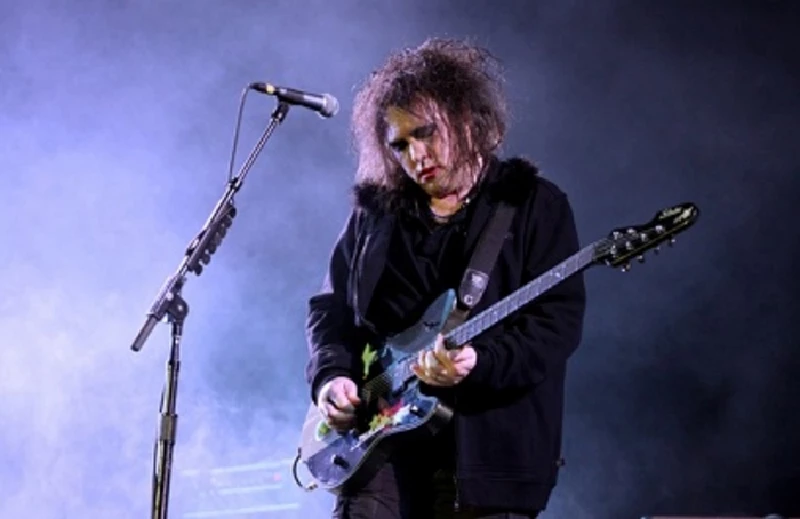
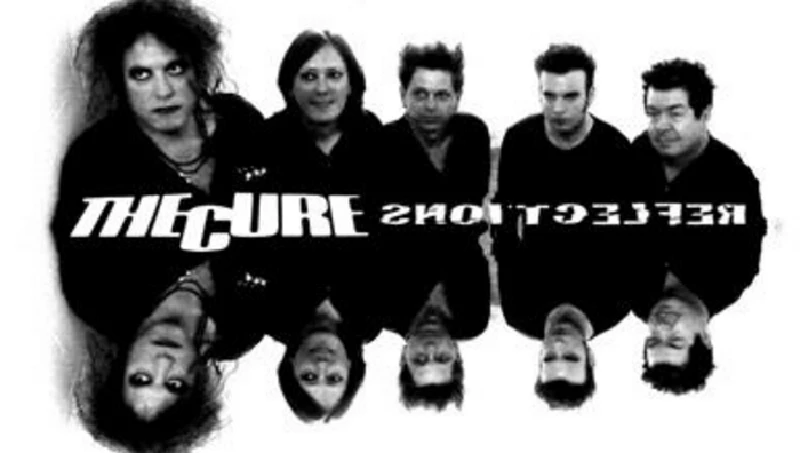
interviews |
|
Interview (2008) |
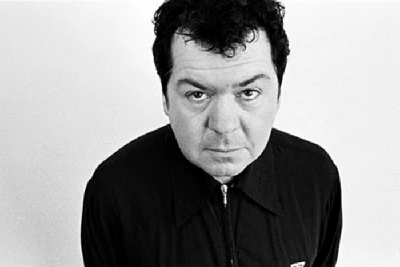
|
| Anthony Strutt speaks to former and founder Cure member Lol Tolhurst about his sixteen years in the band, and his current group Levinhurst, which will be releasing their third album next year |
live reviews |
|
Royal Albert Hall, London, 29/3/2014 |
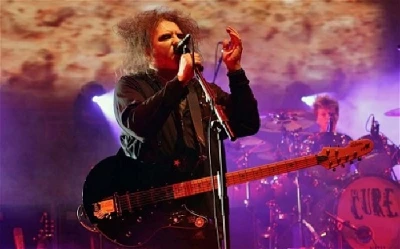
|
| Anthony Strutt watches the Cure play en enthralling but massive 45 song set in aid of the Teenage Cancer Trust at the Royal Albert Hall in London |
| Fillmore, Detroit, 10/12/2011 |
| 02, London, 26/2/2009 |
| Brixton Academy, London, 25/2/2009 |
| Wembley Arena, London, 28/3/2008 |
| Royal Albert Hall, London, 1/4/2006 |
| Old Billingsgate Market, London, 17/9/20 |
| Old Trafford , Manchester, 9/7/2004...10/7/2004 |
| Old Trafford Stadium, Manchester, 9/7/2004 |
| Hamburg Color Line Arena, 9/11/2002 |
| London Hyde Park, 27/7/2002 |
features |
|
The Cure (2010) |
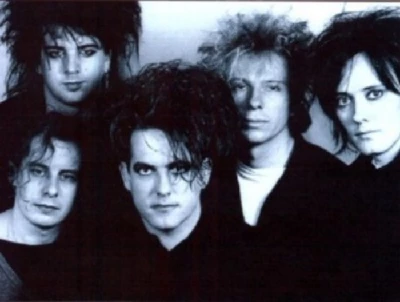
|
| In our 'Soundtrack of Our Lives' column, in which our writers describe the personal impact of music upon their lives, Tara McEvoy writes about the enduring legacy of the Cure |
| Trilogy (2003) |
reviews |
|
4.13 Dream (2008) |
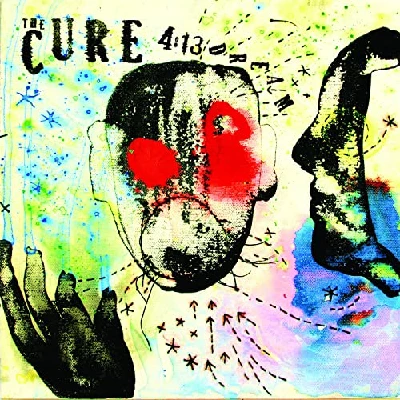
|
| Excellent first album in four years from the Cure, but which has to grow on its listener before being fully appreciated |
| Hypnagogic States EP (2008) |
| The Perfect Boy (2008) |
| Sleep, When I'm Dead (2008) |
| Freakshow (2008) |
| The Only One (2008) |
| Taking Off (2004) |
| The End Of The World (2004) |
| Cure (2004) |
most viewed articles
current edition
Carl Ewens - David Bowie 1964 to 1982 On Track: Every Album, Every SongArmory Show - Interview with Richard Jobson
John McKay - Interview
Colin Blunstone - Thalia Hall, Chicago, 16/7/2025
Bathers - Photoscapes 1
Billie Eilish - O2 Arena, London, 10/7/2025
Loft - Interview
Visor Fest - Valencia, Spain, 26/9/2025...27/9/2025
Sir Tim Rice - Interview
Robert Forster - Interview
previous editions
Manic Street Preachers - (Gig of a Lifetime) Millennium Stadium, Cardiff, December 1999Heavenly - P.U.N.K. Girl EP
Beautiful South - Ten Songs That Made Me Love...
Oasis - Oasis, Earl's Court, London, 1995
Peter Perrett - In Dreams Begin Responsibilities Interview Part One
Boomtown Rats - Ten Songs That Made Me Love....
Coldplay - Wembley Arena. London, 16/8/2022
Prolapse - Interview
Pixies - Ten Songs That Made Me Love...
Trudie Myerscough-Harris - Interview
most viewed reviews
current edition
Davey Woodward - Mumbo in the JumboSick Man of Europe - The Sick Man of Europe
Lucy Spraggan - Other Sides of the Moon
Amy Macdonald - Is This What You've Been Waiting For?
Phew, Erika Kobayashi,, Dieter Moebius - Radium Girls
Suzanne Vega - Flying With Angels
Bush - I Beat Loneliness
Alice Cooper - The Revenge of Alice Cooper
Cynthia Erivo - I Forgive You
Blueboy - 2
related articles |
|
Lol Tolhurst: Interview (2016 |
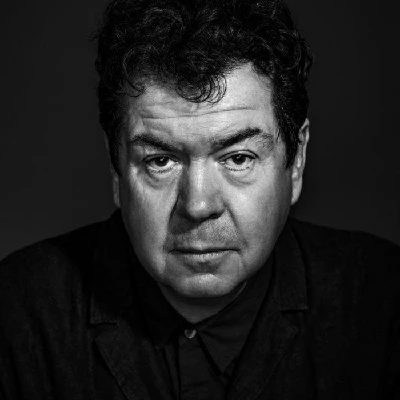
|
| Former Cure drummer and keyboardist Lol Tolhurst talks to Anthony Strutt about his memoir 'Cured' and his long-standing friendship with Robert Smith |
Pennyblackmusic Regular Contributors
Adrian Janes
Amanda J. Window
Andrew Twambley
Anthony Dhanendran
Benjamin Howarth
Cila Warncke
Daniel Cressey
Darren Aston
Dastardly
Dave Goodwin
Denzil Watson
Dominic B. Simpson
Eoghan Lyng
Fiona Hutchings
Harry Sherriff
Helen Tipping
Jamie Rowland
John Clarkson
Julie Cruickshank
Kimberly Bright
Lisa Torem
Maarten Schiethart